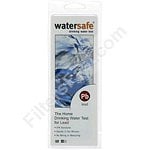Though designed to protect the environment and everything in it, sometimes environmental laws fall short of that goal and actually allow very bad things to happen — such as the unlimited discharging of wastewater containing dissolved metals, and probably several other environmentally unsafe things, from a power plant in Tennessee into the Clinch River.
WASHINGTON (Dow Jones)–Environmental groups on Thursday took aim a Tennessee Valley Authority power plant that was responsible for a toxic spill last year, challenging a new permit allowing the plant to dump unlimited amounts of additional pollutants into Tennessee’s Clinch River.
Earthjustice, Environmental Integrity Project and the Sierra Club filed the appeal before the Tennessee Water Quality Control Board. It challenges a permit granted last month by the Tennessee Department of Environment and Conservation, or TDEC, that allows the TVA to discharge pollutants into the river.
Power plants dump dirty water into rivers in part because of technology to keep soot and ash out of the air. But if the waste is pumped into waterways without being treated, the mixture of water and metals can damage drinking-water supplies and the environment. State are largely responsible for regulating the discharges.
“What we’re seeing on the whole is cleaner air but dirtier water,” said Abigail Dillen, a lawyer with Earthjustice. She said the TVA’s Kingston plant was “not taking the additional steps they need to take to treat their wastewater,” since state environmental regulators hadn’t required it.
The TVA said in a statement that “although an analysis will show that metals are present in the discharged water, state and federal agencies have determined that there is no reasonable potential for these materials to cause an exceedance of any water-quality criteria.” A spokeswoman for the state environmental regulator referred a reporter to the permit, in which TDEC lays out its rationale for the conditions. ( source )
Pretty scary stuff when an organization guilty of polluting the environment can wave a legally issued permit around and say, “Yes, we are guilty of dumping undisclosed amounts of environmentally harmful chemicals into the river but this permit says we can… so there.”
Situations like this make all of us at Water Testing Blog glad the public has access to test kits for metals in drinking water that provide rapid test results for things like copper, iron, manganese, chromium, and lead. For a more general test of the metals content of water, people can also use a product such as SenSafe Water Metals Check to get a semi-quantitative reading of the total metals content of well water, tap water, groundwater, etc.







